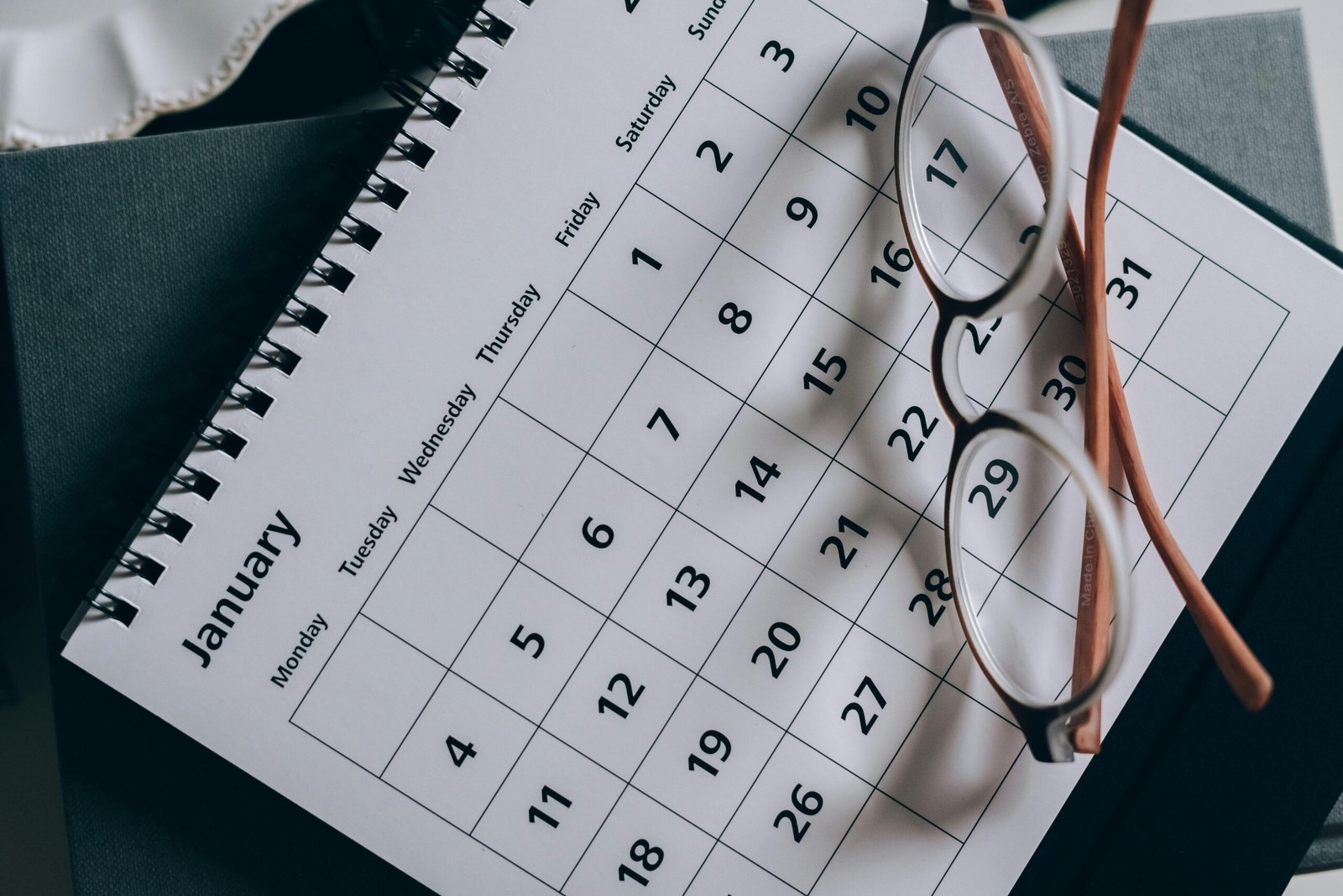Introduction
The inevitable part of running a business regardless of where you are in the world would be paying taxes, these taxes could be income tax, VAT, corporate tax, and etc. And sometimes as a business owner, you don’t have money to pay these taxes because there was an unexpected business expense that you needed to cover first that is equally important as paying these taxes.
In this situation, you are able to pay these unexpected expenses first because you know when these taxes are due. Which is why, business owners have heard not once, but a lot of times about the word: “Tax Year” and yes, you will be asking, is it not the same as the standard year we follow every year, like Christmas and New Year? The answer is no, and this guide will tell you why.
What Is the UK Tax Year?
The UK tax year is the period that the government (HMRC) uses to calculate how much tax you need to pay. Within this 12-month period you will have earnings from being an employee or a business owner and you will have to report those earnings to the HMRC so you can pay the right amount of tax. You are also allowed to claim any money back from those earnings called “tax refunds”.
This tax year us different from the regular calender year which runs from 1 January to 31 December, the UK tax year runs from 6 April to 5 April of the following year. For example, the 2024/25 tax year starts on 6 April 2024 and ends on 5 April 2025.
It applies to:
- Individuals – for income tax, capital gains tax, and allowances.
- Self-employed people – for calculating business profits and expenses.
- Employers – for PAYE (Pay As You Earn) payroll reporting.
- Investors and landlords – for rental and investment income.
You will be automatically taxed regardless of your classification if you stay in UK for 183 days or more. UK will count you as UK tax resident even if your income comes from outsike the UK.
Non-Negotiable Dates
The dates mandated, and take not of the word “mandated” are not negotiable. This means that these dates are immovable regardless of your circumstances. Even if you are making a lot of profit or non at all, these dates would still stay the same.
Which is why, as business owners, sometimes they can pay these unexpected business expenses because they know when the taxable year ends and starts. With this, they can apply for a VAT Loan or a Corporation Tax loan so they won’t face penalties for late payments.
According to Ross Martin, these are the penalties that apply for late payments (Self-Assessment):

Photo credit: rossmartin.co.uk
Tax Payments Deadline Extensions
If you cannot pay your tax bill on time, there is one quick solution. You can apply for a loan. Even HMRC offers a payment plan but upon their assessment, if they see you as not capable of paying what you owe them then you are going to have to pay them in full.
For loans such as corporation tax loans and vat loans, MacManus Asset Finance can help you quickly. No need to wait a few days, you can get answers and cash quickly within 24 hours making it ideal for urgent tax deadlines.
Why the UK Tax Year Is Not the Same as the Calendar Year
It might seem odd that the UK tax year doesn’t start on 1 January like most countries — but there’s a historical reason for it.
The story goes back to the 15th century, when the Pope Gregory XIII used the Gregorian Calendar from Julian Calendar. Back then, the tax year started on 25 March, which was known as Lady Day — one of the quarter days used for settling rents and accounts. There were issues between the 15th to 17th century which made some inconsistencies in the calendar time itself which led the change.
In 1752, Britain switched to the Gregorian calendar, which was already used by much of Europe. This change meant skipping 11 days to bring the dates in line, moving the tax year start from 25 March to 5 April. Later, a leap year adjustment added one more day, setting the start date at 6 April, where it remains today.
So while it may feel inconvenient, this quirk is a leftover from centuries-old accounting traditions — and it’s unlikely to change anytime soon.
Tax Deadlines You Need to Know
Knowing the UK tax year dates is one thing — but keeping track of the deadlines is what helps you avoid penalties and interest charges from HMRC. Here are the main ones to remember:
Self Assessment Tax Returns (for self-employed, landlords, or anyone with untaxed income)
- Paper tax return deadline: 31 October after the end of the tax year.
- Online tax return deadline: 31 January after the end of the tax year.
Example: For the 2024/25 tax year (ending 5 April 2025):
- Paper return: 31 October 2025.
- Online return: 31 January 2026.
Tax Payment Deadlines
- 31 January – Pay any tax you owe for the previous tax year, plus your first “payment on account” if required.
- 31 July – Second “payment on account” (if applicable).
For Employers (PAYE Deadlines)
- Monthly PAYE submissions – Due to HMRC on or before employees’ payday.
- Annual reporting – Submit your final Full Payment Submission (FPS) and Employer Payment Summary (EPS) by 19 April after the end of the tax year.
Missing these deadlines can lead to penalties, interest, or both — so it’s worth setting reminders well in advance.
How the UK Tax Year Affects You
The UK tax year impacts everyone who earns income, but the effect can look different depending on your situation.
Employees
Your employer would normally operate PAYE which deducts tax along with your National Insurance before you get your wages. At the end of the tax year, you’ll receive a P60 summarising your total pay and the tax you’ve paid for that tax year.
Self-Employed
Self-employed must pay tax on their profits under self-assessment. If there is excess of your income as a self-employed person after deducting business expenses, then that is where you will base how much you are going to pay along with NIC. In short, income deducted to business expense totals to net profit then net profit.
Check out how much taxes you need to pay from Money Helper.
Landlords and Investors
As a landlord, you still pay taxes based on how much rental income you make. The first £1,000 you make is non-taxable however, this is called “property allowance”. Any profit made between 6 April and 5 April is reportable. If you plan on selling your property, you are subject to capital gains tax.
As an investor, however, are taxed the same way as landlords should they be property investors. For other types of investments such as if a person bought shares for £2,000 but sold it for £11,000 then he would be subject to capital gains tax for that £9,000 profit.
Tips for Staying on Top of Your Tax Year
There isn’t actually any other more important of a tip rather than just keep in mind of the UK Tax Year, that is just it. If you are aware of this from time to time then the less likely you are going to be affected by penalties out of late payments. But, there are some other tips as well the you need to consider to make things even smoother.
1. Keep Accurate Records
Like any other venture, you need to keep records. It doesn’t have to be the most comprehensive of sort. You just need to keep all the important information whether in a folder or accounting software. This makes it easier for you to if HMRC asks for proof in the future.
2. Use Digital Tools
There are a lot of tools out there that we can utilize. These tools will help you minimize time and effort especially if you are juggling with multiple sources of income.
3. Mark Deadlines on Your Calendar
Even the most fundamental like the calendar in your phone, you can set it up to give you notifications from time to time so you won’t forget.
4. Plan for Tax Payments
Always treat taxes as a monthly expense. Set aside money monthly so you won’t have to worry about it when the deadline comes.
5. Get Professional Advice
An accountant or tax adviser can help you claim all eligible allowances and avoid mistakes that could cost you money.
By making tax tasks part of your regular routine, you’ll avoid last-minute chaos and keep your finances under control.









